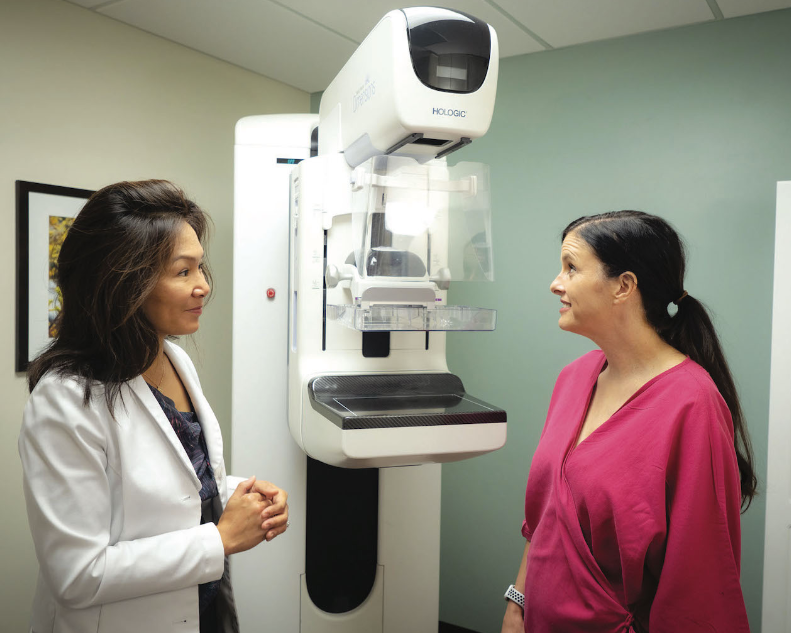May 19, 2023, 08:32
by
Dr. Winifred K. Leung

On May 9, the U.S. Preventive Services Task Force (USPSTF) issued a draft recommendation saying that all women of average risk should get mammograms starting at age 40, instead of waiting until age 50. Sansum Clinic and Ridley-Tree Cancer Center already recommend annual (every year) mammograms starting at age 40 for women of average risk. Our recommendations are aligned with the American College of Radiology, the Society of Breast Imaging, the American College of Breast Surgeons and the American College of Obstetrics and Gynecology.
Sansum Clinic’s fellowship-trained breast radiologist Winifred Leung, MD explains the reasons behind the Task Force’s policy change, why healthcare organizations have not always agreed with this task force, and what recent data shows about disparities in women with breast cancer.
What is the U.S. Preventive Services Task Force (USPSTF)?
The USPSTF is a panel of disease prevention experts composed of public health, primary care, and epidemiologists. The Task Force’s recommendations often influence health insurance coverage and policies.
What new information prompted the USPSTF to update its mammogram recommendations?
The Task Force cited “new and more inclusive science” about breast cancer in younger women, specifically in women under 50. The Task Force noted that a significant race disparity exists in that Black women are 40% more likely to die of breast cancer compared with white women, and often are diagnosed with later-stage cancers at younger ages. USPSTF stated that more research needs to be performed to understand the underlying causes, and what can be done to eliminate this health disparity. It also predicted its policy change could result in 19% more lives being saved. Currently, breast cancer is the second most common cancer and the second most common cause of cancer death for women in the U.S..
 Why is this important?
Why is this important?
The recommendations bring the USPSTF one step closer to what most physicians recommend on breast cancer screening. The intentional focus on health equity is also important. While lowering the screening age to 40 will not automatically improve health equity, it could be valuable for patients at high risk for poor outcomes from breast cancer, such as Black women.
Sansum Clinic and Ridley Tree Cancer Center can help you make informed decisions about personalized screening to determine if an annual mammogram is enough screening, or if you might benefit from additional imaging, including whole-breast ultrasound or high-risk screening MRI.